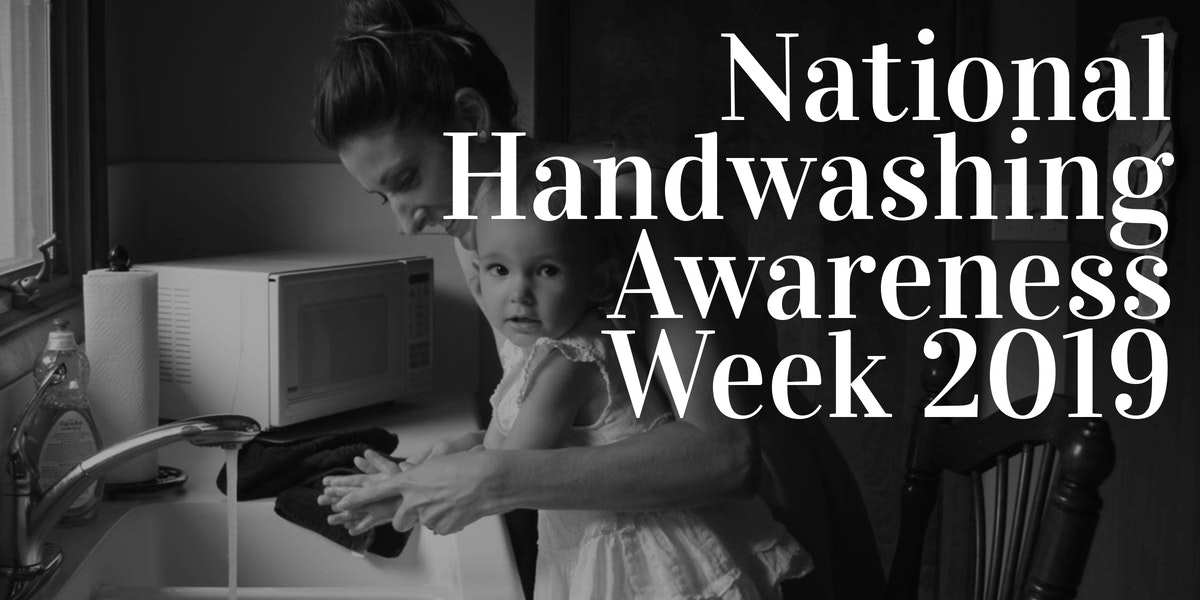This year's National Handwashing Awareness Week was observed between the first and seventh of December as a concentrated effort to educate the populace regarding the importance of proper and consistent hand hygiene practices.

Observing National Handwashing Awareness Week
Consistent, high-quality hand hygiene, combined with routine high-performance cleaning and disinfection services, are the two best methods for eliminating the presence and spread of germs and bacteria in our homes, workplaces, schools, and everywhere in between.
Unfortunately, the reason an entire week must be dedicated to awareness training and education each year regarding the importance and methods involved in proper handwashing practices is that so few people wash their hands correctly, if at all.
According to The World Bank;
Handwashing with soap and water is a simple way to reduce the spread of disease.
Yet many people don’t wash their hands when they should: before touching food, after using the toilet or after cleaning a baby’s bottom.
Because bacteria, parasites, and viruses can easily spread when people don’t wash their hands, finding ways to boost handwashing can significantly reduce the risk of potentially fatal diarrheal and respiratory infections for children.
These lapses lead to preventable illness and death, especially among young children, and have indirectly contributed to the rise in antibiotic-resistant superbugs.
Antibiotic-resistant infections could cause 2.4 million deaths in North America, Europe and Australia by 2050 if actions aren’t taken to curb the problem, according to the Organization for Economic Cooperation and Development (OECD).
The widespread overuse of antibiotics is “one of the biggest threats to modern medicine.
To stay healthy and prevent infections caused by bacteria, frequent hand washing, covering coughs, staying home when sick and getting recommended vaccines, such as the flu shot, are among the best ways to lessen the chance of needing antibiotics.
Taking direct action now will have a tremendous impact on your personal health, as well as the wellness and safety of those around you.
Not So Fun Handwashing Facts
- 80% of infectious diseases can be transferred by touch.
- Regular handwashing can reduce the instance of diarrhea by as much as 40%.
- Approximately 1.5 million children under the age of 5 die each year from diarrhea and pneumonia.
- Handwashing can prevent 1 out of every diarrhea-related illness and 1 out of 5 infections, including influenza.
- According to the U.S. Centers for Disease Control and Prevention (CDC), only 31% of men and 65% of women wash their hands after using the bathroom.
- Approximately 90% of sinks in public restrooms are covered in bacteria from toilets.
- Only about 20% of people dry their hands after washing them, even though wet hands are 1000 times more likely to spread germs and bacteria.
- Students and workers who wash their hands regularly have 24% fewer sick days due to respiratory illness and 51% fewer sick days due to stomach illness.

Handwashing Don'ts
When washing and drying yours or your children's hands, there are several things that you should avoid, including:
- Use a single cloth or towel to wash or dry multiple people's hands.
- Use standing water to rinse your hands, or;
- Use sponges or cleaning cloths to wash or dry your hands unless they are routinely laundered.
The Four Principles of Hand Awareness
Hand hygiene and individual health is a personal responsibility.
However, washing your hands regularly is only the first step.
You must also maintain awareness of what your hands come into contact with.
According to the American Medical Association and American Academy of Family Physicians, each person should:
- Wash their hands when they are dirty and before eating.
- Not cough into their hands.
- Not sneeze into their hands, and;
- Avoid putting their fingers in their eyes, nose, and mouth.
Source:
References & Resources
- Celebrating Handwashing Awareness Week
- National Handwashing Awareness Week - First Full Week in December
Takeaway
Establishing the habit of proper handwashing and hand awareness is critical to ensuring the health and safety of ourselves and our communities.
Failing to do so could lead to the catastrophic failure of antibiotics and the deaths of millions of people per year in the U.S., Canada, and Europe alone.
High performance cleaning services reduce or eliminate the presence of infectious disease and bacteria.
However, presently, the personal hygiene of others cannot be counted upon and so each person must take action to protect themselves and those around them.
If you would like more information regarding the effectiveness of high-performance infection prevention and control measures, or if you would like to schedule a free, no-obligation onsite assessment of your facility's custodial needs, contact us today for a free quote!
In Bakersfield CA, call (661) 437-3253
In Fresno CA, call (559) 206-1059
In Valencia CA, or Santa Clarita CA, call (661) 437-3253
In Palmdale CA, or Lancaster CA, call (661) 371-4756


You must be logged in to post a comment.